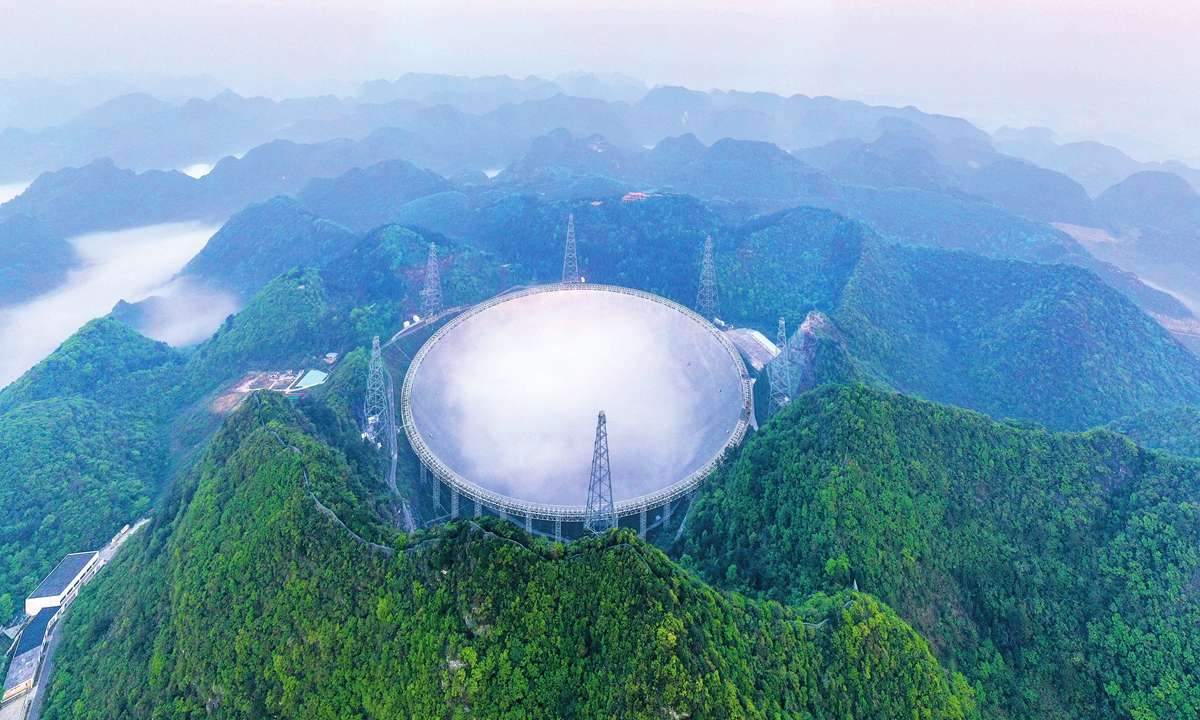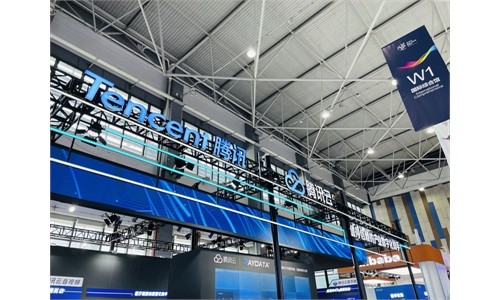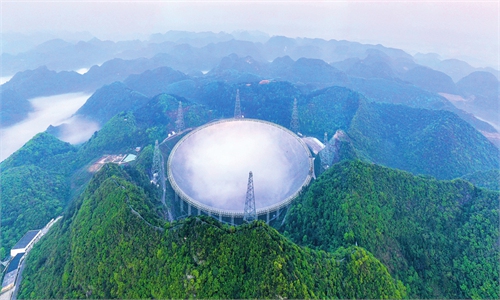
The 500-meter aperture spherical radio telescope (FAST) sits in the middle of mountains Photo: Xinhua
Chinese technology giant Tencent and the National Astronomical Observatories under China's Academy of Sciences (CAS) will jointly launch a "stellar exploration plan" to utilize artificial intelligence (AI) to assist the nation's 500-meter Aperture Spherical radio Telescope (FAST) in the search for pulsars and the exploration of the universe.
The joint plan will be based on the leading computer vision technology of Tencent's lab and the leading computing capacity of Tencent Cloud, said Pony Ma Huateng, founder and CEO of Tencent, through a WeChat voice message on Thursday at the 2021 World Artificial Intelligence Conference held in Shanghai.
Detecting pulsars has great practical value, aside from being a major help in better understanding the universe. These neutron stars, with their extremely stable spinning nature, could serve as natural lighthouses for human deep space exploration, Zhang Shuangnan, a senior professor with the Institute of High Energy Physics, CAS and principal investigator of the institute's Gamma-ray Burst Polarimeter - POLAR project, told the Global Times.
As of May, China's FAST, more commonly known as the "Sky Eye," had detected 201 pulsars, including some of the faintest, as well as 40-millisecond pulsars and 16 binary pulsars.
Leveraging AI, Tencent Cloud can help process the huge data received from FAST and find clues to pulsars through visual AI analysis.
According to Tencent, such AI technology is expected to play a key "prescreening" role to streamline scientists' analysis of the vast load of data captured by the Sky Eye every day. "It will take only three days to process work that previously took a year," Tencent insiders told the Global Times on Thursday.
Computer vision is a field of AI that trains computers to interpret and understand information from digital images, videos and other visual inputs.
"In the past year, AI has brought more and more convenience to life in areas such as medical care, urban governance and non-contact services. But in the field of AI, what remains unknown is greater than the known.
"We must make AI technology knowable, controllable, usable and reliable. We have to outsmart the increasingly powerful AI technology to keep it in check," said Ma.
Meanwhile, the National Astronomical Observatories did not comment on the Global Times' request for further details on this collaboration.



